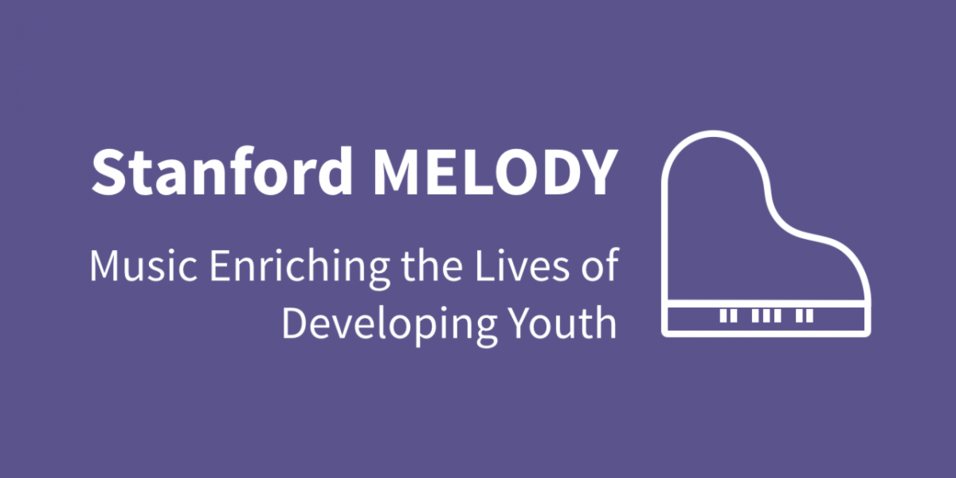
Community Engaged Scholars Program, 2023-2024
Join a community of students committed to rigorous scholarship that is community-engaged, equity-focused, and designed for social impact.
The Community Engaged Scholars Programs
The Community Engaged Scholars Program (CESP) exists to support and elevate the work of Stanford students undertaking senior honors theses, MA theses, or undergraduate capstone projects that are community engaged and designed to have public impact. Students can participate in CESP concurrently with their honors or capstone program in their major academic department, interdisciplinary program of study, or MA program. Students may also propose independent capstone projects.
Over the course of the academic year, CESP offers students the support, structure, resources, and accountability necessary to successfully complete their theses or capstone projects AND to ensure their project has public value and impact, rather than being something that simply “sits on the shelf.”
The CESP is designed to complement rather than duplicate the requirements of students’ honors, capstone, or MA programs and the efforts of faculty advisors during the thesis-writing process.
A Transdisciplinary Community of Scholars
Established in 1994, the CESP (formerly known as the Public Service Scholars Program or “PSSP”) encourages students to connect community work and activism with their academic and research interests. Under the mentorship of the program director, students form a supportive community of scholars who share an interest in public scholarship, scholar-activism, and community engagement. CESP is considered “transdisciplinary” because it values and integrates knowledge and expertise not just from academic disciplines but from community sources and lived experiences.
Through CESP, students participate in both a community of practice designed to promote relational and reflective learning and a community of purpose that supports the explicit discussion of values and identities and the exploration and application of social, intellectual, and political commitments to scholarly practice. CESP encourages students to explore research as a form of scholar-activism and provides opportunities for students to share their writing in small groups, solve problems collaboratively, and critique thesis plans, conceptual frameworks and methodologies.
CESP students undertake community-engaged theses and capstone projects across all majors. In the past CESP students have completed theses in human biology; peace and conflict studies (an individually designed major); comparative studies in race and ethnicity; feminist studies; history; American studies; political science; urban studies; sociology; psychology; science, technology, and society; among others.
Mentorship
By request, PSSP students can be matched with a Stanford staff, faculty, graduate student, or community member who serves as a mentor. The mentor relationship is highly individualized, but mentors typically provide advice and support to foster the community-engaged dimension of the thesis research and to pursue larger questions of how this work relates to students’ lives and career goals.
Program Highlights and Requirements
- Access to mini-grants ($250-$1000) to support the carrying out of a community engagement or social impact plan
Fall Quarter 2023
- Fall CESP Retreat (off-campus): An opportunity to build relationships and community in the cohort, learn more about each other’s work, and consider ways to integrate key community engagement principles and social action strategies and goals into your thesis or capstone projects.
- One-credit Seminar: "Promising Practices in Community-Engaged Scholarship" that meets biweekly and explores evidence-based strategies to achieve impactful, equity-based community engagement outcomes through your scholarly work; discusses ways to critically negotiate ethics, identity, and power in your work with/in communities; and provides supplemental thesis writing support and opportunities for you to peer workshopping your community engagement ideas and social action projects-in-progress.
Winter Quarter 2024
- Weekend Writing Retreat (off campus)
- Mock Community Foundation Board Presentation: An opportunity to pitch your social action plan to Stanford CESP alumna/ae and receive mentoring/feedback on your work-in-progress
- Responsive topical and writing groups: A chance to present and receive feedback on community-engaged/social impact objectives and goals of your thesis or capstone project
Spring Quarter 2024
- Personalized mentoring and support from Haas Center to reach the finish line on your community engagement/social impact plans
- Final Thesis presentations: Participation in Haas-sponsored event, Community Engaged Scholars Program Thesis Presentations, which allows students to highlight and celebrate the community-engaged abd social impact components of their thesis or capstone project (this is important because typically there is little time available in departmental thesis and capstone presentations to emphasize the community engaged intentions and outcomes)
- CESP Graduation Brunch: Special brunch for CESP students, their friends, and families on the Friday before graduation (hosted by the Haas Center)
Eligibility
- Individuals from all majors and programs are welcome to apply for admission to CESP.
- Students may apply in the by June 16, 2023 to receive priority consideration to participate in CESP during the 2023-24 academic year.
- Applications received after the priority deadline of June 16, 2023, will be reviewed on a case-by-case basis.
Requirements
- Intention to complete an honors thesis, capstone project, or MA thesis in a major academic department or interdisciplinary program. Students may also propose independent capstone projects, subject to approval by the CESP director
- Prior knowledge of and experience with community-based research, scholar-activism, and/or public scholarship
- Regular contact with faculty advisor to ensure project meets all requirements of major academic department or interdisciplinary program
- Commitment to the CESP community through full participation and support of colleagues
- Development of a plan for community action/social impact
Students who choose to participate in CESP for all three quarters qualify to earn a Cardinal Commitment designation.


